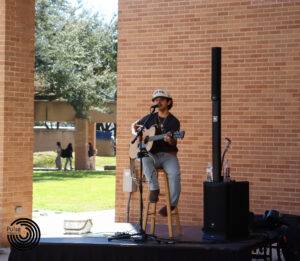Getting Justice is a Privilege

Mexico is a really sexist country. A lot of people are aware of it but not everyone understands the gravity of the problem. Mexico and the United States are neighbors, but these two countries are really different. In Mexico, you can get murdered or raped for just being a woman and not get any justice at all. An average of ten women dies every day due to gender violence according to the Secretariado Ejecutivo del Sistema Nacional de Seguridad Pública (SESNSP); this has pushed feminists to speak up and protest. My boyfriend’s friend once asked me about the protests and what they were for. I explained the situation and he was shocked at the fact that, that was going on in the country. That was when I realized not everyone is aware of this major issue.
I, a woman, am aware that if something happens to me in the U.S., I’ll more than likely get more justice than I will in Mexico. But let’s not forget that the U.S. system is also flawed, not as much as Mexico’s, but it is still flawed. For reference, I recommend watching Netflix’s miniseries “Unbelievable,” based on a real case where the system fails a rape victim. To compare each country’s flawed systems, I highly suggest Netflix’s documentary “Las Tres Muertes de Marisela Escobedo.” This documentary shows the story of Marisela Escobedo, whose 16-year-old daughter was murdered by her partner and the government did nothing. Marisela tracked the man down herself and gets the police to catch him. He confesses to the crime in court and shares the location of her remains but even then, he is declared innocent due to lack of evidence. Marisela marches, protests and does everything she can to raise awareness for her case. The man finally gets declared guilty but by then, he is nowhere to be found. Marisela keeps protesting and marching and does a sit-in in front of the Chihuahua State Governor’s Office to get the governor’s attention, where she, spoiler alert, gets shot in the head. Neither her daughter nor Marisela got justice for their murders.
In “Unbelievable,” the main character gets somewhat justice at the end. Her rapist gets caught and the detective that questioned her at the beginning apologizes to her. But in the case of Marisela, there was no justice or closure whatsoever. Marisela’s “murderer” was caught and sent to prison, but theories say that he was paid by a cartel to take the responsibility. Later on, Sergio, the daughter’s murderer, was killed during an encounter with the military and with his death, the case was closed. The man remained a fugitive until he died.
Unfortunately, getting justice has become a privilege in Mexico. In a country where victim-blaming is a common practice, a lot of victims are scared to speak up about their experiences. Those who do speak up most likely won’t get any justice because our government is useless and misogynistic. We can’t even trust our police officers. There have been cases of policemen raping women, like the case of four policemen who raped a girl, who was walking back home from a party, in their police car in Azcapotzalco, or the case of a police officer raping a 16-year-old in the Museo de Archivo de la Fotografia and let’s not forget the case of the woman who went into the police station to report an aggression incident and got raped by the police officer helping her with the report. We can’t trust our schools either. For example, we have the Tecnologico de Monterrey, one of the most prestigious universities in Mexico, that has received claims of professors and classmates acting inappropriate and abusive towards female students and in most of the cases, nothing was done. Students claim the protocol of filing a report is flawed, since it was implemented in 2017, they have received 204 reports which only 56 were looked into following the protocol, from those 56, only 27 were acknowledged as valid complaints and only 21 were sanctioned. The Universidad Autonoma de Nuevo Leon (UANL) is another example. Students have been continuously harassed by fellow classmates and professors. The Tec de Monterrey and UANL students have spoken up multiple times, took part in the #MeToo movement and shared their experiences via social media. They spoke to their rectors, but nothing has worked to make these men accountable for their actions. The professors are still working there, and the classmates are still studying there.
This is why women protest–because the government nor our police protect us. We only have each other.









